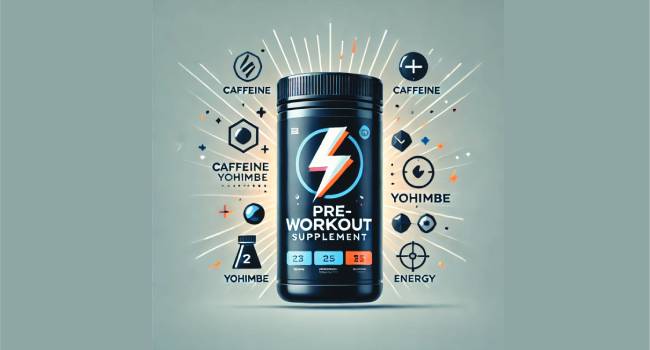Pre-Workout Supplement Risks
Pre-Workout Supplement Risks and their Pros and Cons:
Pre-workout supplements have surged in popularity among athletes and fitness enthusiasts aiming to boost energy, endurance, and performance. While these supplements may offer benefits when used responsibly, it’s essential to understand their potential negative impacts, especially when they contain ingredients like caffeine, yohimbe, and other stimulants. Overuse and addiction to pre-workout supplements can lead to serious health issues, making it critical to weigh both the benefits and drawbacks before incorporating them into your routine.
Common Ingredients and Their Risks
Many pre-workout supplements contain high levels of caffeine, known to enhance alertness and energy. While caffeine can improve exercise performance, excessive amounts can lead to jitteriness, anxiety, and even heart palpitations. Some pre-workouts may contain as much as 300-400 mg of caffeine per serving—equivalent to drinking three to four cups of coffee in a short period. Regular use at these levels can lead to dependency, withdrawal symptoms, and increased tolerance, pushing users to consume even more to get the same effects.
Another common ingredient is yohimbe, a stimulant derived from the bark of the Yohimbe tree. While it may help burn fat, yohimbe can cause elevated heart rate, high blood pressure, and in some cases, dangerous side effects like heart attacks. Similarly, beta-alanine and other stimulants included in pre-workout formulas are used to enhance endurance, yet they may cause tingling sensations, itching, and flushed skin, which can be uncomfortable or alarming to users.
The Risk of Addiction and Overuse
Pre-Workout Supplement Risks also increased due to their stimulating effects which can lead to overuse. As individuals build tolerance, they may take larger doses to feel the same level of energy and focus, leading to dependency. Over time, users may feel they cannot perform effectively without a pre-workout, and withdrawal symptoms—such as fatigue, irritability, and decreased motivation—can occur when they stop using the product. This dependency can contribute to excessive consumption, resulting in health risks and potential addiction to stimulants.
Potential Long-Term Health Risks
Continuous consumption of high-stimulant pre-workouts can place significant stress on the cardiovascular system, increasing the risk of hypertension, arrhythmias, and even heart attacks, especially in individuals with underlying heart conditions. Furthermore, stimulants like caffeine and yohimbe can interfere with sleep patterns, which may result in poor recovery and reduced performance over time.
Safer Alternatives and Best Practices
For those looking to avoid the risks associated with high-stimulant pre-workouts, there are safer alternatives. Options like natural caffeine sources (green tea, matcha), hydration supplements, or even nutrient-dense foods such as bananas and oats can provide sustained energy without the risks of overuse. Additionally, checking the ingredient list, avoiding products with excessive caffeine and harmful stimulants, and consulting a healthcare professional can help minimize potential health risks.
In summary, while pre-workout supplements can enhance workout performance, they come with risks, especially when containing stimulants like caffeine and yohimbe. Responsible use, awareness of ingredient content, and exploring natural energy sources can offer safer, more sustainable options.











